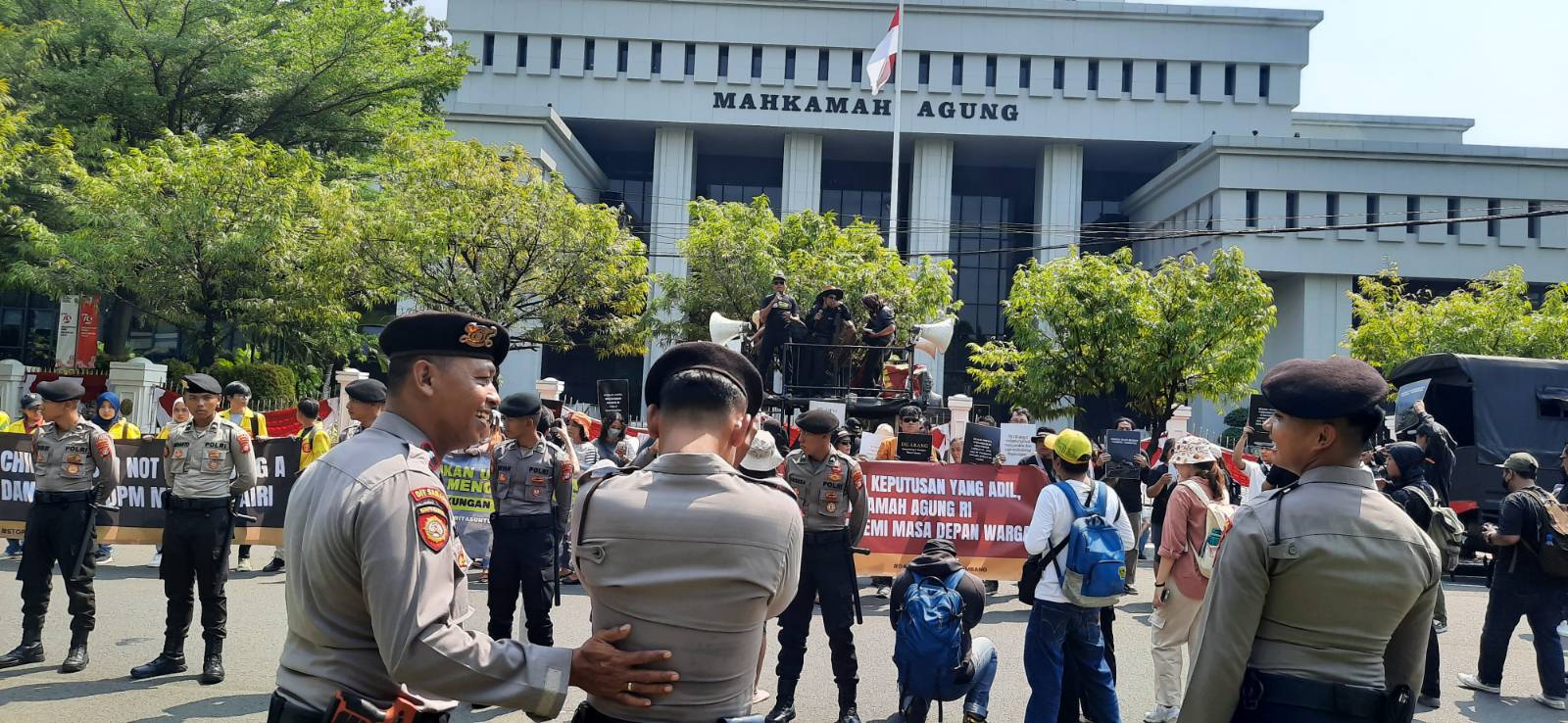Dairi Regency community representatives, students and civil society organizations demonstrate outside the Supreme Court in Jakarta.
Indonesia’s Supreme Court has ruled that an environmental permit granted to the Dairi Prima Mineral zinc and lead mine in North Sumatra should be revoked. This is a major win for local community representatives who have been fighting to stop the mine for many years. Inclusive Development International has been working with these communities since 2019, alongside Indonesian partners including BAKUMSU, a community advocacy NGO that is providing legal aid and that announced the court decision in a press release last week.
Independent international experts have deemed the Dairi Prima Mineral mine a disaster waiting to happen. Plans for an on-site waste storage facility, or tailings dam, are of particular concern to local communities. Given seismic activity in the area and other environmental conditions, mining experts say the dam is almost certain to fail, which could unleash more than 1 million tons of mud and toxic waste on nearby villages.
After the Ministry of Environment and Forestry granted a permit to Dairi Prima Mineral in 2022, community representatives filed a lawsuit against the company and the Ministry. An Administrative Court in Jakarta ruled in their favor last year, concluding that the company had not adequately consulted local people, and that the mine was located in a disaster-prone area and violated the Right to a Good and Healthy Environment. The Administrative Court ordered that the environmental approval be cancelled. The Ministry and the company appealed that decision, getting it overturned at the High Court level, but community representatives filed an appeal to the Supreme Court, which on August 12 ruled that the original Administrative Court decision should stand.
Dairi Prima Mineral has pledged to apply for a judicial review of the ruling and said it will continue construction of the mine despite the decision, but backing from the Supreme Court underscores the strength of the communities’ case against the developer.
“The ruling is a very positive sign for mining-affected communities across Indonesia,” says Inclusive Development International’s senior legal and policy director Natalie Bugalski. “If the Indonesian government is serious about positioning itself as a global hub for responsible mining and production, it should not allow perilous mines like this one, which pose risks that are simply too grave and can’t be managed, to proceed. To do so would demonstrate a total lack of commitment to protecting against the human rights impacts of mining operations.”
Dr. Bugalski adds: “As the world shifts toward renewable energy and electric vehicles, it is imperative that the minerals and metals needed to fuel this transition are sourced in a way that respects the rights of people living on resource-rich land. We must rapidly transition to renewable energy sources and we need access to the transition minerals to do so—but in some cases, mining operations are simply too reckless to proceed. The Dairi Prima Mineral in North Sumatra mine is one such case.”
Other experts have also pointed to this case as a litmus test for whether the Indonesian government is willing and able to hold mining companies accountable for their environmental and human rights impacts. Dr. Steven Emerman, a mining environmental consultant with 40 years’ experience, who has reviewed the plans for the Dairi Prima Mineral mine, has called this case a “canary in the coal mine,” saying that if the mine is allowed to proceed, “any manufacturing company seeking minerals for the clean energy transition will have to leave Indonesia…If the Supreme Court’s decision is not implemented, it will show the world that Indonesia has no will to ensure environmental and human rights protections associated with mining.”


